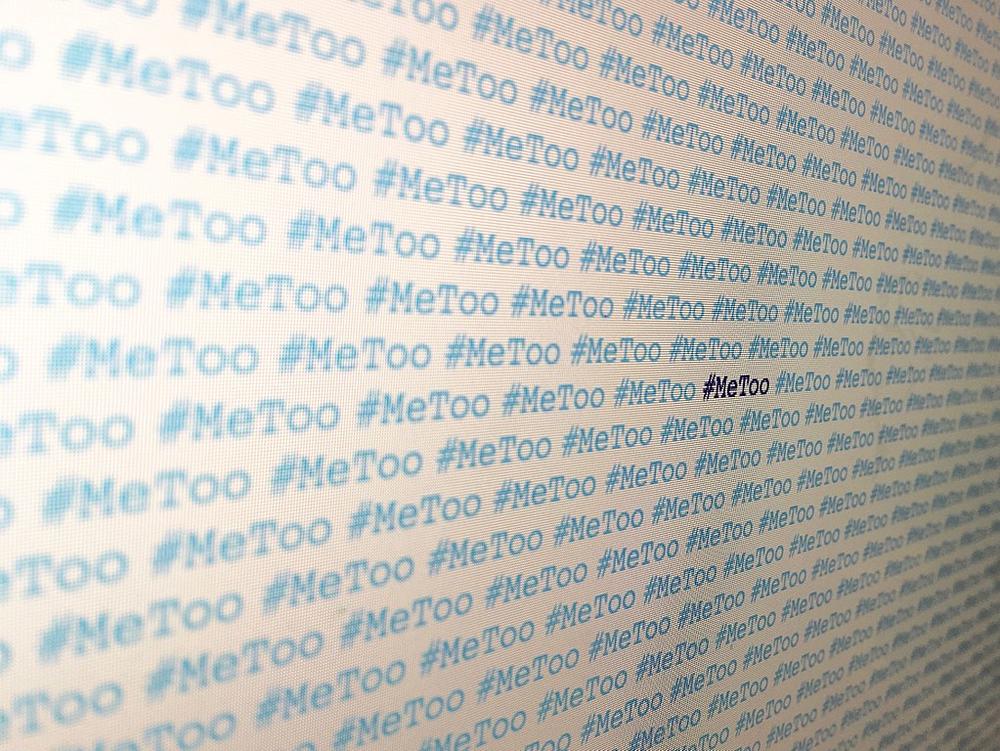Section Branding
Header Content
Commentary: Cutesy Terms Don't Cut It
Primary Content
Two U.S. Congressmen resigned last week: one Democrat, one Republican. They are the latest men to face consequences for alleged sexual misconduct. Sarah Cook is a Georgia State University psychology professor. She offers this commentary.
Why the way we describe sexual abuse matters.
I’ve studied violence against women for more than 20 years. I’ve watched as public outrage over harassment and assault wax and wane. Now, my question is: Could this time be different?
The sheer number of reports is new. It’s also new to see organizations like NPR, or the Academy of Motion Picture Arts and Sciences hold leadership accountable for failure to intervene.
But other aspects of this cultural moment are all too familiar. Already, I’ve heard the terms “Weinsteining,” or the “Weinstein effect.” This language removes women from their own stories. And it creates a narrow focus on a singular perpetrator.
Cutesy terms also diminish the agony of deciding whether to make a formal complaint. Those who have been victimized say they fear reprisal. They fear no one will believe them. They also feel shame, guilt and embarrassment.
Let me be clear: these are rational fears. Some actors allegedly victimized by Harvey Weinstein or James Toback continued in the industry and found success. But many others were excluded from major films, or left the industry entirely. And then, there’s women who were encouraged to sign agreements to stop them from telling their own stories.
Another way of undermining women is to downgrade the reports from categories of harassment, sexual assault and rape, and instead label them abuse, minor bad behavior or innocent miscommunication. For example, the claim that James Toback engaged in "low-level lechery" and not sexual assault is absurd. What he’s been accused of is obtaining sexual stimulation or orgasm by rubbing against a person without their consent. It’s a crime. And it’s called frotteurism.
Years of social science data underscore how common sexual violation is in women’s lives. And the victimization of powerful celebrities shows that no woman is immune. The sad truth is that the number of women who have been raped or assaulted in their lifetime has not decreased during the past 30 years.
One analysis of different studies of women in academia, government, the private sector and the military represents 86,000 women in all. It found 58 percent said they had experienced at least one instance of sexually harassing behavior. Recently, researchers at the University of Oregon found nearly 60 percent of women graduate students reported experiences of sexual harassment.
The Centers for Disease Control and Prevention estimates that 1 in 5 American women have been raped.
If we look at Hollywood as a microcosm of society, men like Harvey Weinstein and James Toback effectively exerted a pattern of intimidation, fear and social control through sexual predation. The behavior of these men isn’t about sex – it’s about intimidation, fear and social control.
Diminishing and undermining the process of women reporting experiences of sexual harassment, rape and other forms of sexual assault by calling it “Weinsteining” allows predators to hold onto power.
Describing women’s real experiences with words that match the horror they faced is a first step toward dismantling that power and the structures that support it. If more women come forward and name their experiences, others will remember that bad manners, assault and harassment are not synonymous, this time may be different. I’m hopeful; but only time will tell.
Read a full version of this commentary here.

